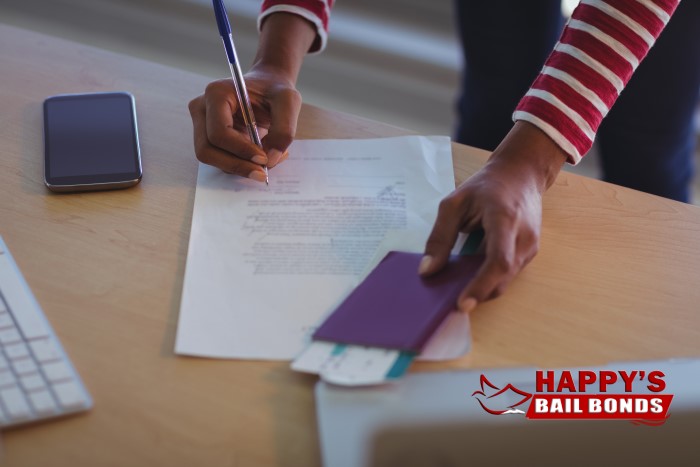Do You Know Your Responsibilities When Co-Signing Bail Bonds?

Co-signing a bail bond is a huge responsibility and liability. Becoming a co-signer means you are signing a contract as the liable party for the defendant. If there is more than one co-signer, both are responsible. You’re essentially assuming the consequences if the defendant does not make his or her payments, skips court, or possibly violates other terms of release that are dependent on the bail bond.
We know you desperately just want to co-sign the bail bond because you’re sympathetic to your very close friend or relative, but you should really weigh certain things before signing off:
• It is the cosigner’s duty to ensure the defendant does not violate any terms of his or her bail and release.
• The cosigner may have to pledge collateral for the bond. This is most often property, electronics, jewelry, and vehicles. The bail agency only keeps collateral if the defendant does not show up in court. Otherwise, it will be returned at the conclusion.
• The cosigner should notify the bail agency of the whereabouts (if known) of the defendant if the defendant tries to flee. Otherwise, the cosigner will have consequences (such as collateral taken).
• The cosigner may request the defendant undergo certain programs and evaluations (like drug tests, mental health evaluations) before agreeing to cosign the bail bond.
What are the Rights of the Co-Signer?
When you co-sign a bail agreement, it’s important that you know your rights. First of all, you have the right to refuse to be a co-signer. You should only enter a legal agreement such as this if you fully understand that you will be responsible to pay for the full amount of the bail bond if the defendant doesn’t show up to court or if they violate a condition of their bail.
Cosigners can request to have their name taken off the bail bond if he or she begins to feel uncomfortable with the defendant. Then the bail bond is retracted and the defendant will be taken into custody. So if the accused commits another crime, or the cosigner believes the accused will not go to court, the cosigner has the right to cut ties with the situation to ensure their own safety.
